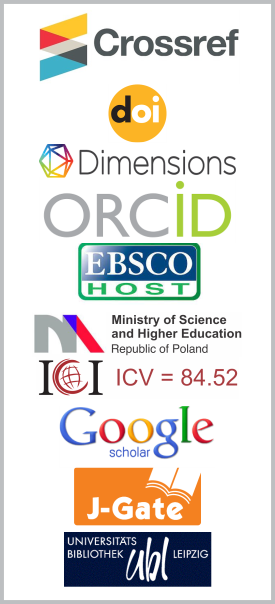Determining the Pillars in a Framework of Mobile Application for Kindergarten Early Reading
DOI:
https://doi.org/10.26713/jims.v9i4.1007Keywords:
Fuzzy Delphi, Mobile application, Literacy, KindergartenAbstract
Many children around the world faced reading difficulties problem. In order to overcome this obstacle, many program and initiative has been proposed and implemented. Mobile application seem have a great potential to enhance reading skills acquisition among young children. However, research exposed many of existing mobile application for young children lack of the criteria for well-design learning tool for early childhood. The disadvantage of these application due to there a lack of specific framework for this niche area. Against to this urgency, researchers focused on formulation a framework of mobile for kindergarten early reading. This research aimed to determine the pillars in a framework of mobile application for kindergarten early reading based on the consensus of expert using Fuzzy Delphi Method. Result indicated a highly consensus on three proposed pillars; technology, pedagogy and content.Downloads
References
S. Tarasat and A.M. Daud, Kesan penggunaan perisian asas membaca terhadap pencapaian membaca murid peringkat prasekolah, Procedia - Soc. Behav. Sci. 134, 399 – 407 (2014).
A.R. Jamian, Permasalahan kemahiran membaca dan menulis bahasa melayu murid-murid sekolah rendah di luar bandar, Malay Lang. Educ. J. 1(1), 1 – 12 (2011).
B. Beschorner and A. Hutchison, iPads as a literacy teaching tool in early childhood, Int. J. Educ. Math. Sci. Technol. 1(1), 16 – 24 (2013).
N.S. Yahaya and S.N.A. Salam, Mobile Learning Application for Children: Belajar Bersama Dino, Procedia - Soc. Behav. Sci. 155, 398 – 404 (2014).
O.T. Murray and N.R. Olcese, Teaching and Learning with iPads, Ready or Not?, Techtrends 55(6), (2011).
L. Plowman and C. Stephen, A ‘benign addition'? Research on ICT and pre-school children, J. Comput. Assist. Learn. 19, 149 – 164 (2003).
C.L. Chau, Positive Technological Development for Young Children in the Context of Children's Mobile Apps, Tufts University (2014).
Michael Cohen Group, Young Children, Apps & iPad (2011).
M.M. Neumann, An examination of touch screen tablets and emergent literacy in Australian pre-school children, Aust. J. Educ. 58(2), 109 – 122 (2014).
L.H. Shoukry, C. Sturm and G.H. Galal-Edeen, Pre-MEGa?: A Proposed Framework for the Design and Evaluation of Preschoolers' Mobile Educational Games, in Innovations and Advances in Computing, Informatics, Systems Sciences, Networking and Engineering, Springer International Publishing (2015), pp. 385 – 390.
S. Siraj, N. Alias, D. Dewitt and Z. Hussin, Design and Developmental Research:Emergent trends in educational research, Kuala Lumpur, Pearson Malaysia Sdn Bhd, Malaysia (2013).
A. Ishikawa, The New Fuzzy Delphi Methods: Economization of GDS (Group Decision Support), in Proceedings of the Twenty-sixth Hawaii International Conference on System Sciences (1993).
Downloads
Published
How to Cite
Issue
Section
License
Authors who publish with this journal agree to the following terms:- Authors retain copyright and grant the journal right of first publication with the work simultaneously licensed under a CCAL that allows others to share the work with an acknowledgement of the work's authorship and initial publication in this journal.
- Authors are able to enter into separate, additional contractual arrangements for the non-exclusive distribution of the journal's published version of the work (e.g., post it to an institutional repository or publish it in a book), with an acknowledgement of its initial publication in this journal.
- Authors are permitted and encouraged to post their work online (e.g., in institutional repositories or on their website) prior to and during the submission process, as it can lead to productive exchanges, as well as earlier and greater citation of published work.




